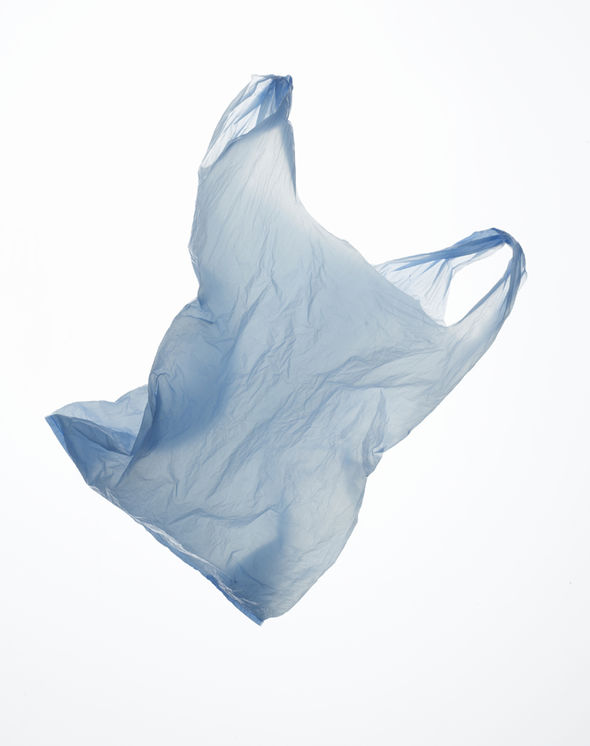Denver’s new bag fee is another object lesson on how to use economics to achieve environmental objectives.
Now do it for greenhouse gases
Starting this month, you’ll have to pay 10 cents for each disposable paper or plastic bag you fill with groceries in Denver. The requirement goes statewide in 2023, under a Colorado law that is similar to provisions adopted in other cities (London and Chicago have bag fees) and other states. Last year, Oregon adopted a law, which mostly bans single use plastic grocery bags, and requires grocery stores to charge a 5 cent fee for every paper bag they provide to customers. These rules all harnesses economic incentives to encourage consumers to remember to bring their own re-usable shopping bags to the store.
There are a lot of reasons to dislike single-use grocery bags; it is a form of waste that is obvious to almost everyone, and bags, especially the plastic ones, are a highly annoying and visible source of litter. Plastic bags also jam up the sorting machines in recycling plants; Portland’s Metro asked consumers to put bags in the trash, rather than recycle them. If the experience of other places that have implemented bag fees (like Chicago and London) are any indication, Oregon can expect a pretty dramatic reduction in the number of single use bags shoppers take. England’s 5 pence fee on plastic bags reduced the number of bags by almost 90 percent in a few years. It’s a small, but potent example of how getting the prices right can quickly, and mostly painlessly, help us achieve an environmental objective. It’s a parable to embrace.
It’s not like we haven’t tried this before. Many states have bottle deposit laws that provide the same kind of smart economic nudge. These bag fee comes on the heels—well, half a century—after Oregon enacted its first in the nation bottle bill, in 1971. Requiring a mandatory deposit on beer and soda bottles and cans produced a dramatic reduction in litter, and led to widespread recycling. The state has a smart performance based system for setting deposits: when recycling rates failed to meet established goals, the bottle deposit was raised from a nickel to a dime. About a dozen states have similar laws now, but most states, including Colorado, haven’t adopted a bottle bill.
Tokenism and Cognitive Bias
But while the bag fee and its cousin the bottle deposit, are a homely, teachable examples of environmental economics, they also represent a deeper and darker message about the challenges we face in tackling our larger environmental challenges. The key question is: if we’re easily able to adopt economic incentives for bags, bottle and cans, why can’t we apply this same tool to the really big problems, same of climate change.
The answer has a lot to do with our distinct cognitive biases: We are aware of, and pay attention to somethings, and are oblivious to others. Almost everyone shops for groceries regularly. Everyone encounters litter (it is visible and annoying). Everyone throws away (or recycles) single-use bags, cans and bottles.
Small scale recycling efforts are a kind of environmental ablution: we go through a ritual to demonstrate to ourselves (and others) our moral commitment to saving the planet. These strategies have real, but small environmental benefits. Trash is ugly and annoying, and often a hazard to wildlife, but it is not the reason the polar ice caps are melting.
Our cognitive bias stems from the fact that carbon emissions, particularly from cars are invisible, odorless and tasteless; they do no cumulate locally, but rather disperse globally. If cars deposited a charcoal briquet every hundred meters or so (which is roughly the amount of carbon they emit), the vast piles of carbon the clogged our streets would immediately prompt us to clean them up, and ban internal combustion engines (just as we no longer tolerate horse manure and how people are expected to clean up after their dogs). But because carbon is invisible and dispersed globally, we don’t care.
So, ironically, we’re very good at small scale tokenism, like the ban on plastic straws in San Francisco. It gives a simulacrum of sacrifice, but makes almost no difference to the larger environmental catastrophe we face. Yet it gives us as individuals and our leaders who enact such policies, the impression that we’re doing something. Too often, we engage in Nieman Marcus environmentalism: engaging in conspicuous displays of “green” consumerism. That may be great for assuaging personal guilt, but does little or nothing to resolve the larger social problem of climate change.
The bag fee is 10 to 20 times higher than a carbon tax
Colorado’s 10 cent bag fee works about to a little less than 2 cents per 10 grams. A kraft paper bag weights about 55 grams. That means that consumers are paying a fee of about 80 cents per pound for their paper bag (454 grams * .09 cents per gram). On a metric ton basis, that means consumers are paying a fee of about $1,800 per ton.
To put that in context, most of the commonly forwarded ideas for a carbon tax suggest that a carbon fee of $50 to $100 per ton would lead to a dramatic reduction in greenhouse gas emissions.
Disposable shopping bag fees ask consumers to pay a fee that is by any reckoning about ten to twenty times higher than the fee we ought to be charging for carbon pollution.
If we can charge a bag fee, we can implement some form of carbon pricing. If we do, we’ll discover that consumers, producers and the overall economy can adapt quickly.

